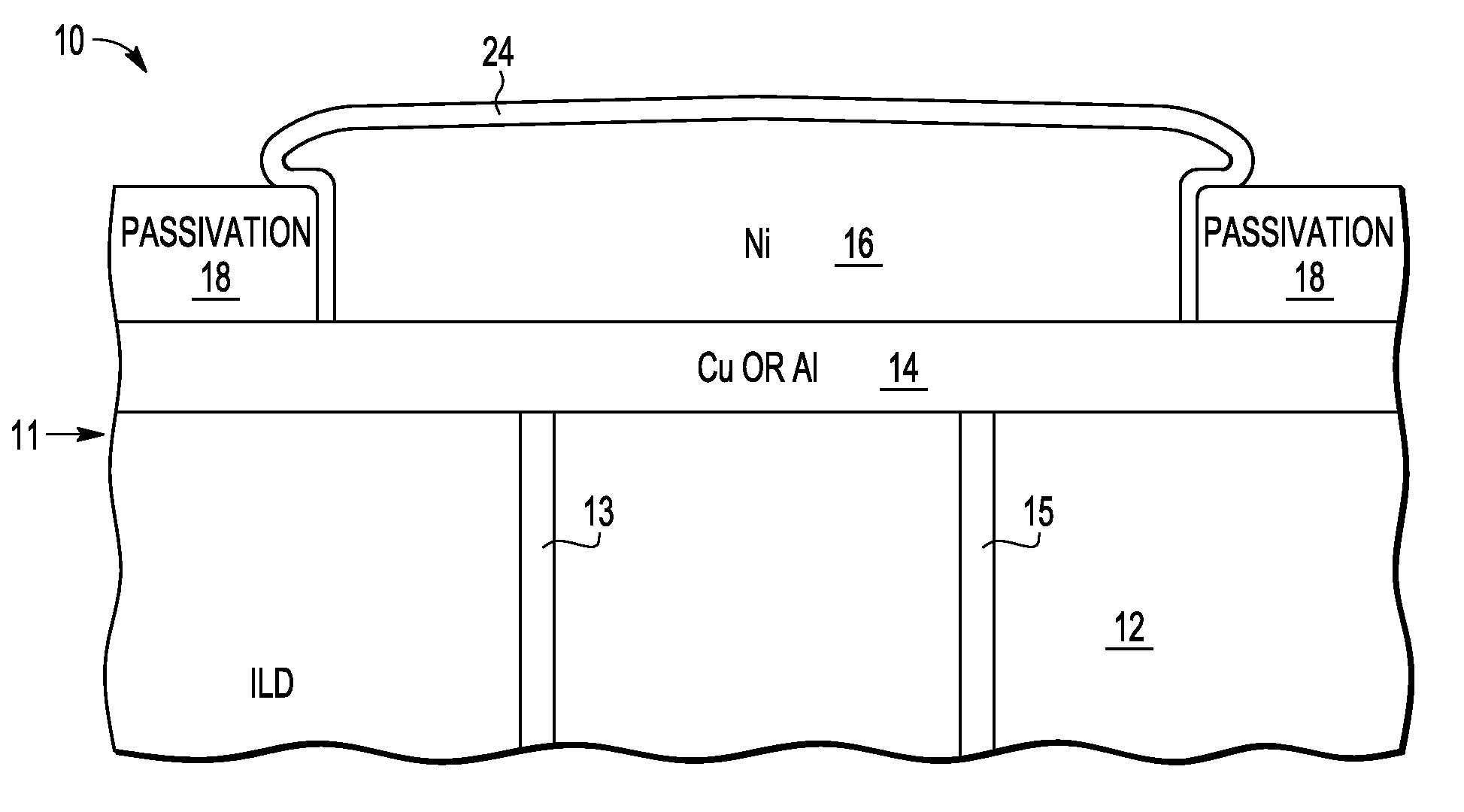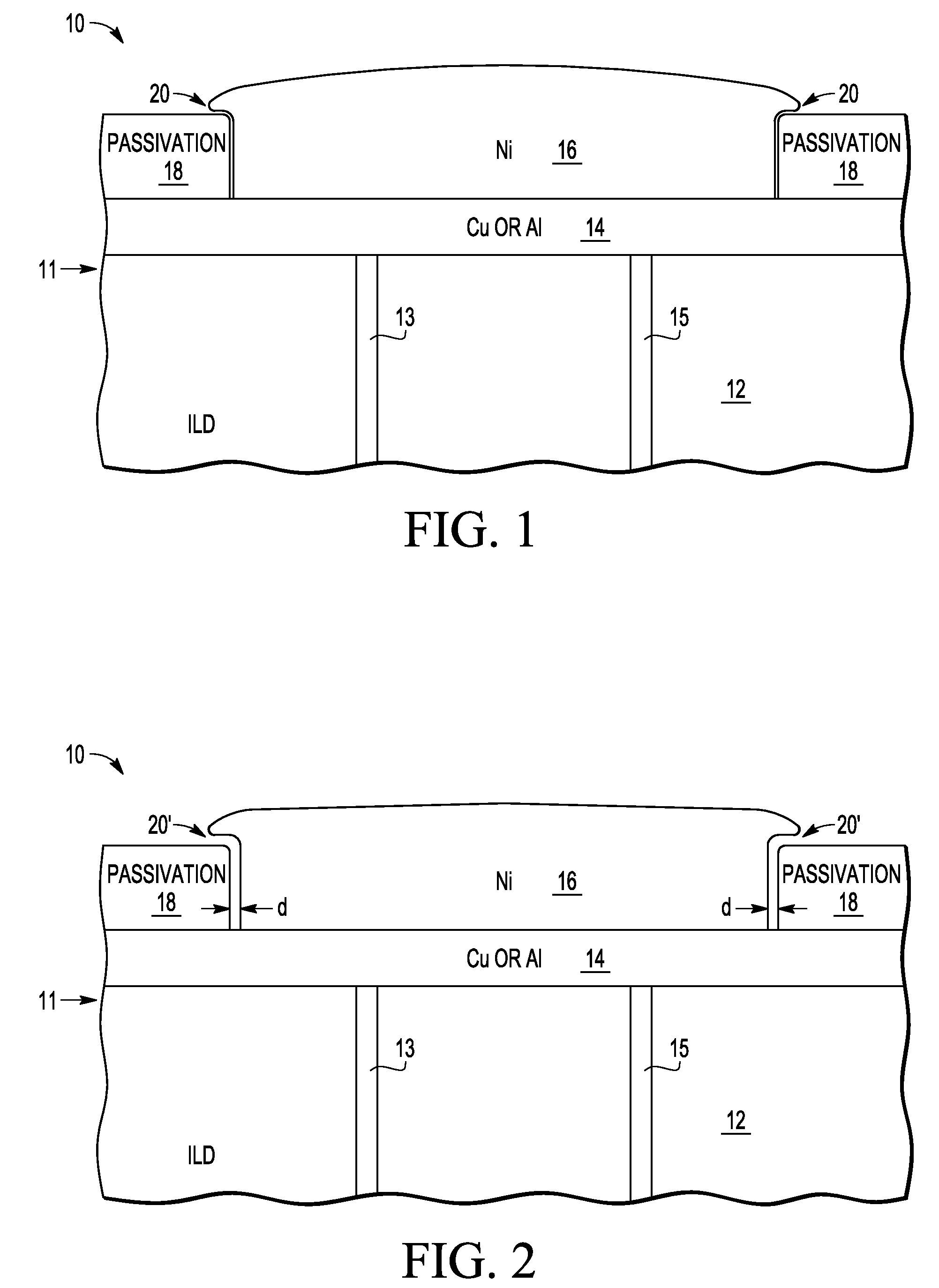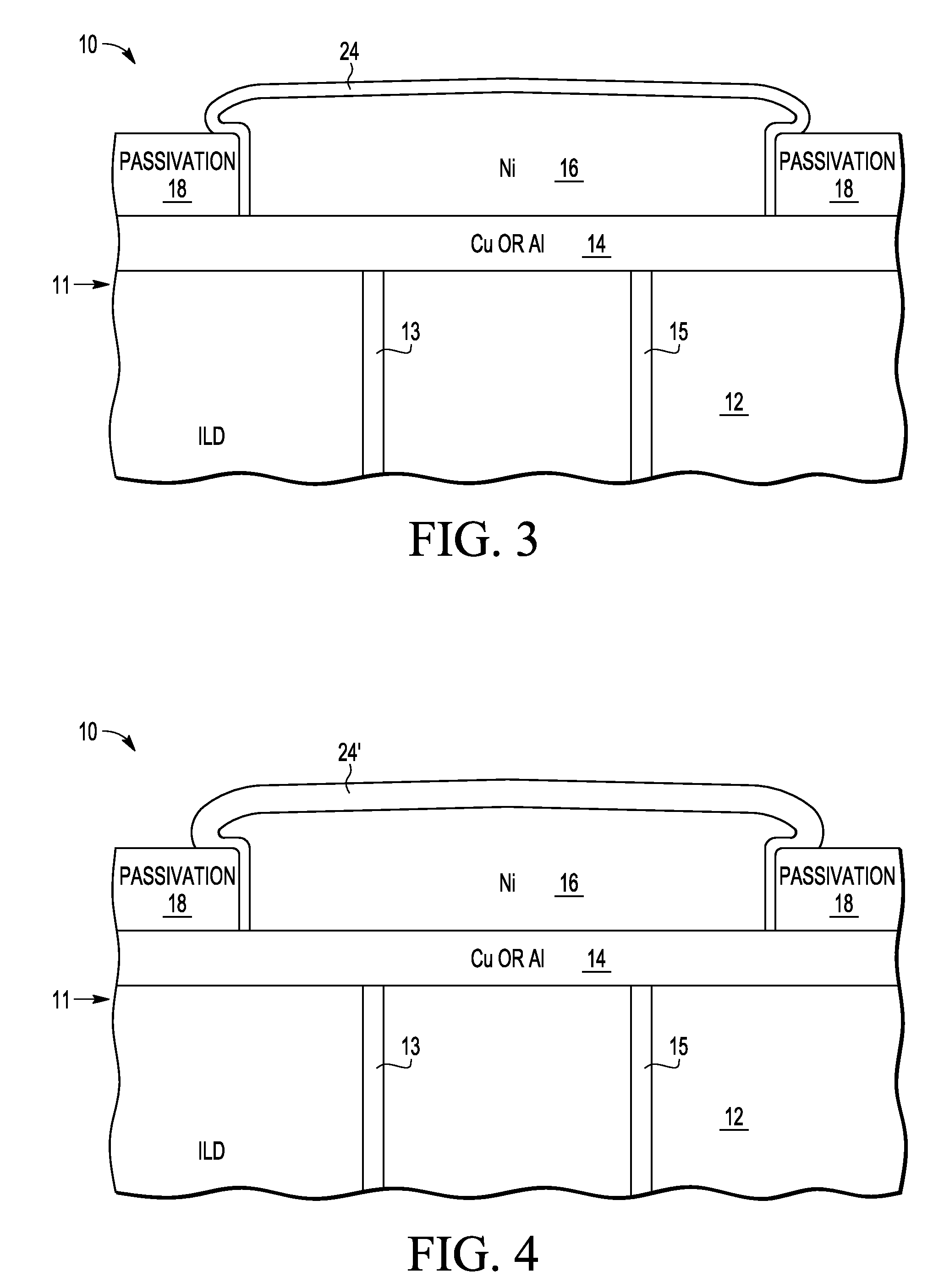Method of improving adhesion of bond pad over pad metallization with a neighboring passivation layer by depositing a palladium layer
a palladium layer and bond pad technology, applied in the manufacture of semiconductors with metal contacts, semiconductor devices, electrical equipment, etc., can solve the problems of bare copper bond pads that are susceptible to corrosion, generally not consistent, and many wire bond structures that cannot pass high temperature reliability tests,
- Summary
- Abstract
- Description
- Claims
- Application Information
AI Technical Summary
Benefits of technology
Problems solved by technology
Method used
Image
Examples
Embodiment Construction
[0007]Illustrated in FIG. 1 is a cross-sectional view of a semiconductor device structure 10 which will minimize reliability issues associated with intermetallic compounds caused by prolonged operation at high operating temperatures. A patterned semiconductor die 11 generally has an inter-level dielectric (ILD) 12, an overlying conductive layer 14 and a patterned passivation layer 18. The patterned passivation layer 18 is an insulating, protective material and has an opening which exposes the conductive layer 14. In one form the conductive layer 14 is either copper or aluminum. Conductive paths or vias 13 and 15 are formed within the ILD 12 and electrically connect the conductive layer 14 to circuitry (not shown) underlying the ILD 12. The vias 13 and 15 in one embodiment are formed by patterning and etching the ILD 12. The vias 13 and 15 are filled with an electrically conductive material such as copper. It should be understood that any number of conductive vias may be implemented ...
PUM
| Property | Measurement | Unit |
|---|---|---|
| temperatures | aaaaa | aaaaa |
| thickness | aaaaa | aaaaa |
| distance L3 | aaaaa | aaaaa |
Abstract
Description
Claims
Application Information
 Login to View More
Login to View More - R&D
- Intellectual Property
- Life Sciences
- Materials
- Tech Scout
- Unparalleled Data Quality
- Higher Quality Content
- 60% Fewer Hallucinations
Browse by: Latest US Patents, China's latest patents, Technical Efficacy Thesaurus, Application Domain, Technology Topic, Popular Technical Reports.
© 2025 PatSnap. All rights reserved.Legal|Privacy policy|Modern Slavery Act Transparency Statement|Sitemap|About US| Contact US: help@patsnap.com



